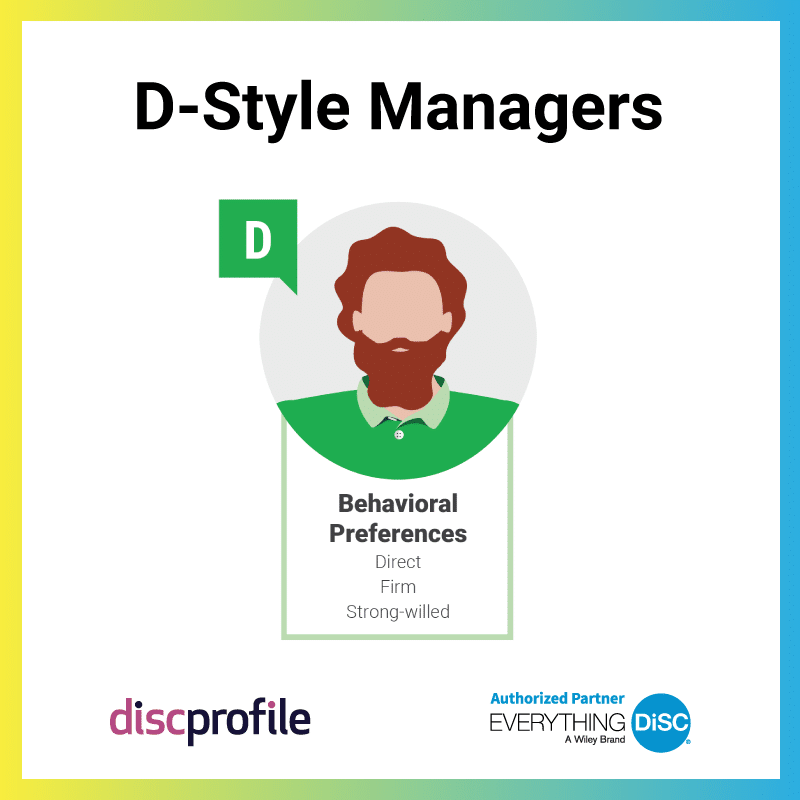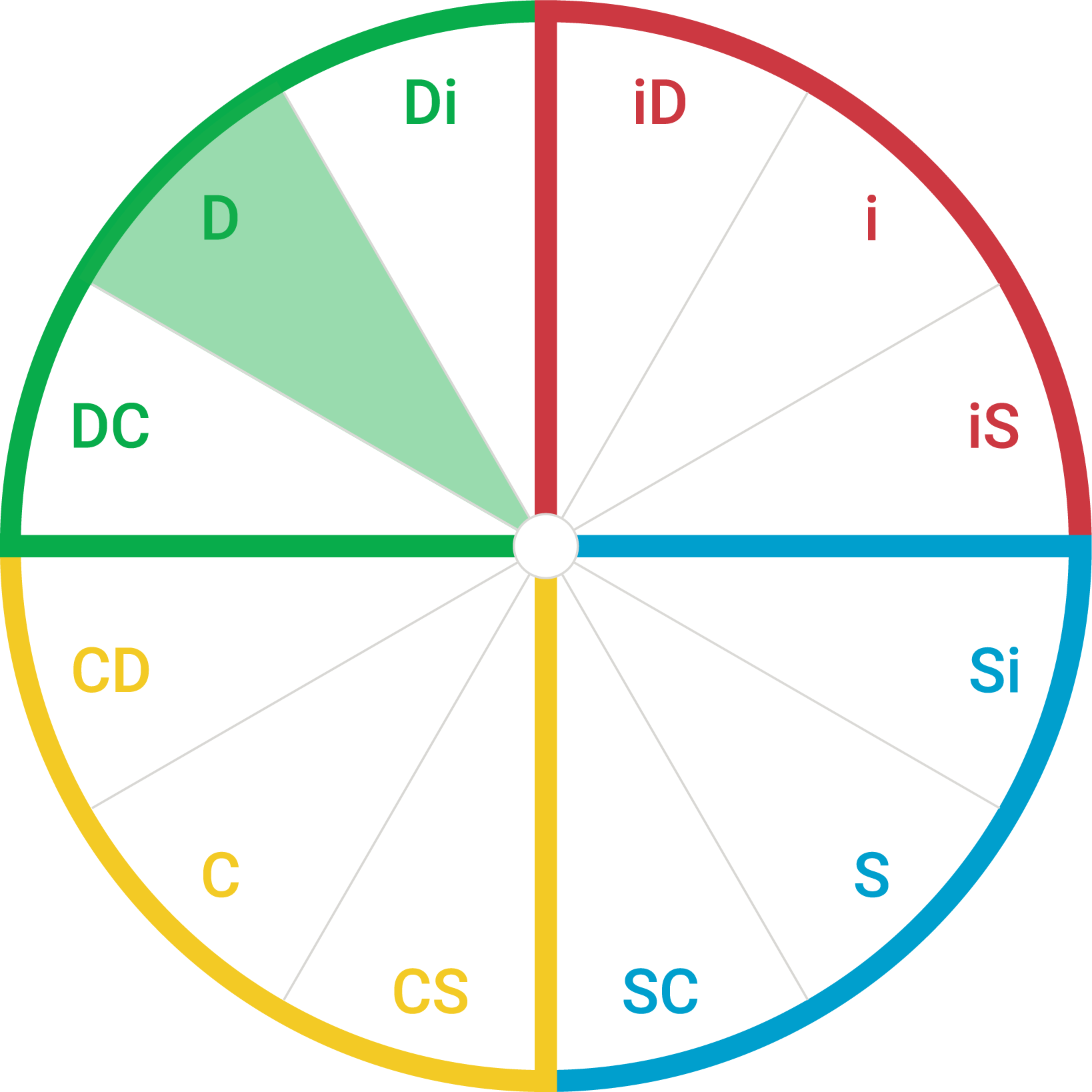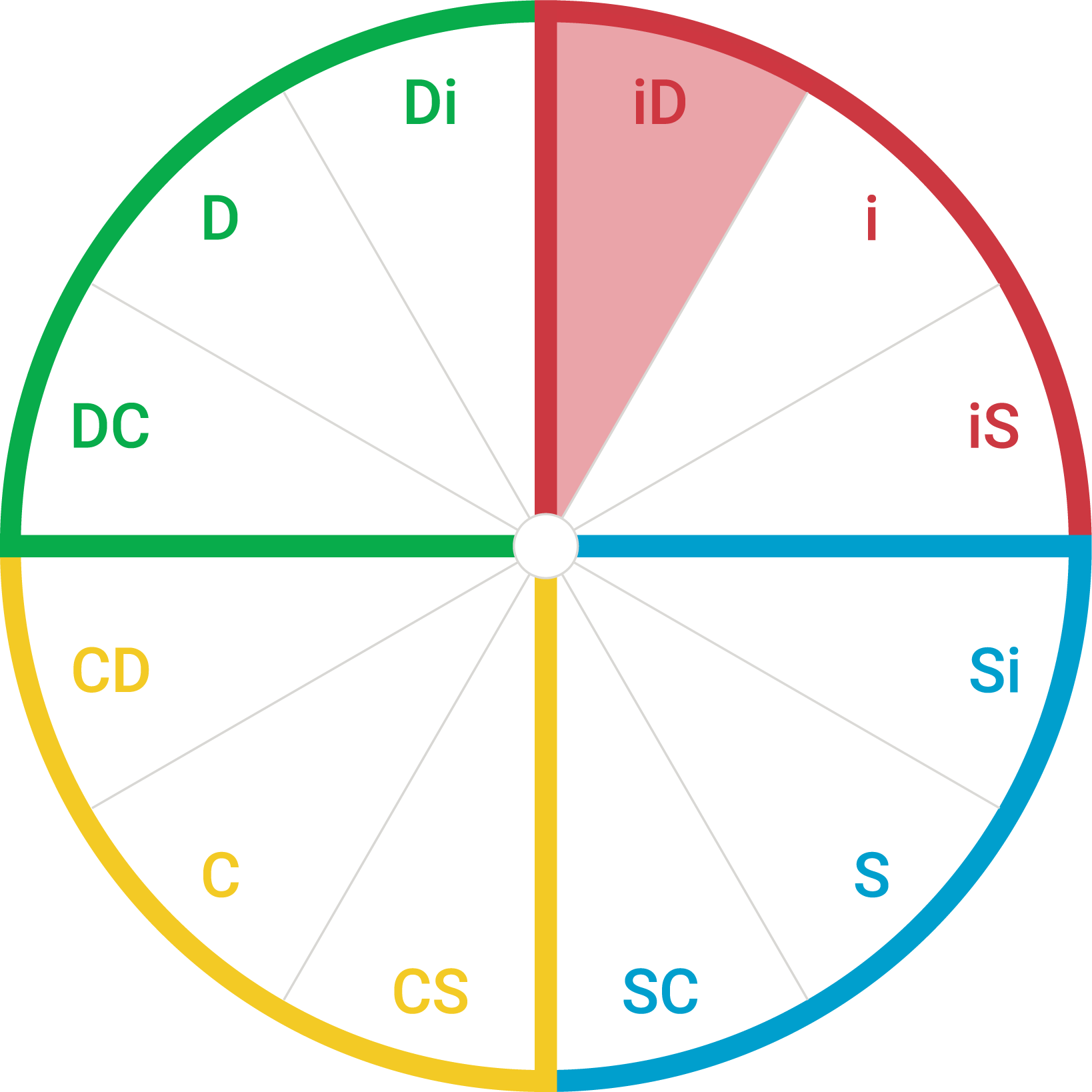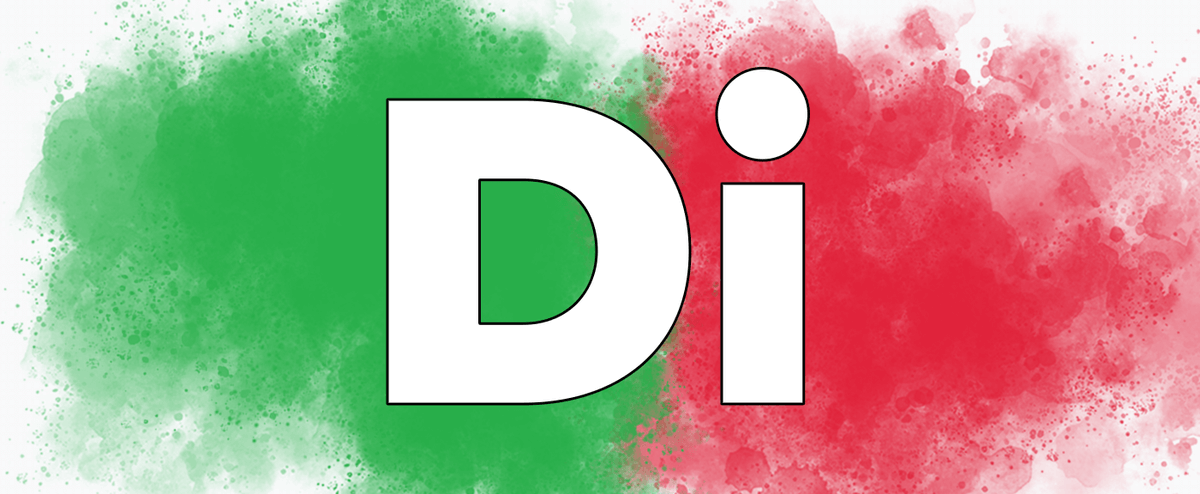
Di Style
People with the DiSC Di style personality are often bold, persuasive, and results oriented. Di types are always looking for new opportunities and tend to be energetic and fast-paced in their day-to-day lives.
What do the ‘D’ and the ‘i’ in DiSC mean?
The D in the Everything DiSC® model stands for dominance and the i stands for influence. People whose DiSC profile shows a Di style display both the dominance of the D style and the influence of the i style. They are dynamic and outspoken, and they tend to create a lively environment for their teammates. They care about accomplishing goals, and often prefer to move quickly when working toward an end result.
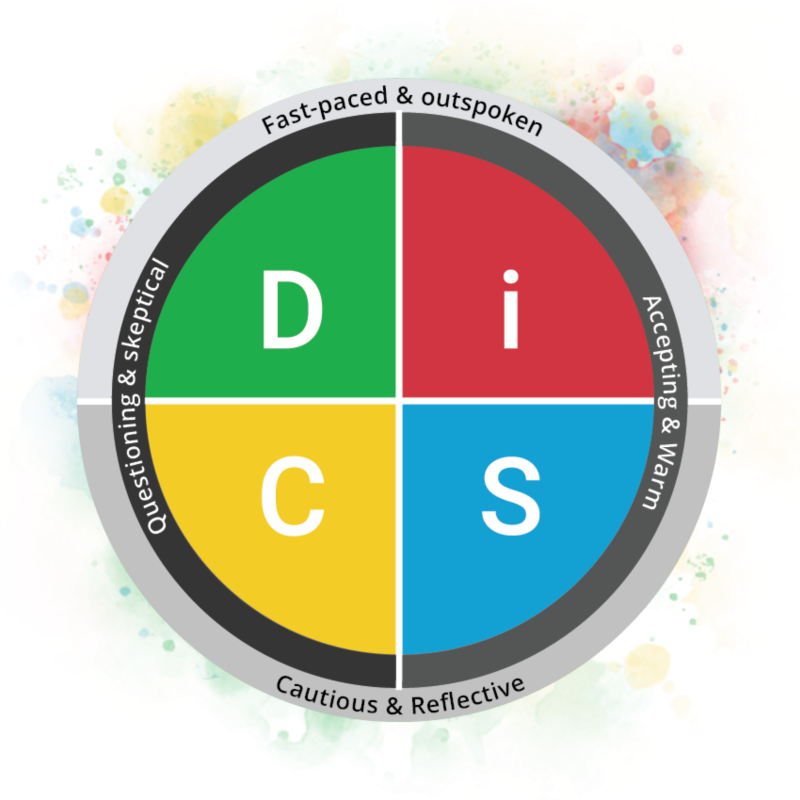
What is a DiSC style blend?
Everyone is a mixture of all DiSC styles, but most people tend toward one or two. While some individuals' DiSC assessment results will show a style with just one letter (D, i, S, or C), others will show a 2-letter style (Di, SC, CD, etc.).
These 2-letter styles are style blends, and they indicate that an individual's personality type falls near the border between two of the four main quadrants.
Everything DiSC assessment takers can see this clearly in their results by looking at where their dot is placed on the DiSC map. If your dot is close to the border with another style, you probably show traits associated with that style, as well. Thus, D styles often share characteristics with the C or i styles.
The Everything DiSC test is calibrated to help you discover which main DiSC style quadrant you fall into, and if your results show a blend, which style blend best fits you.
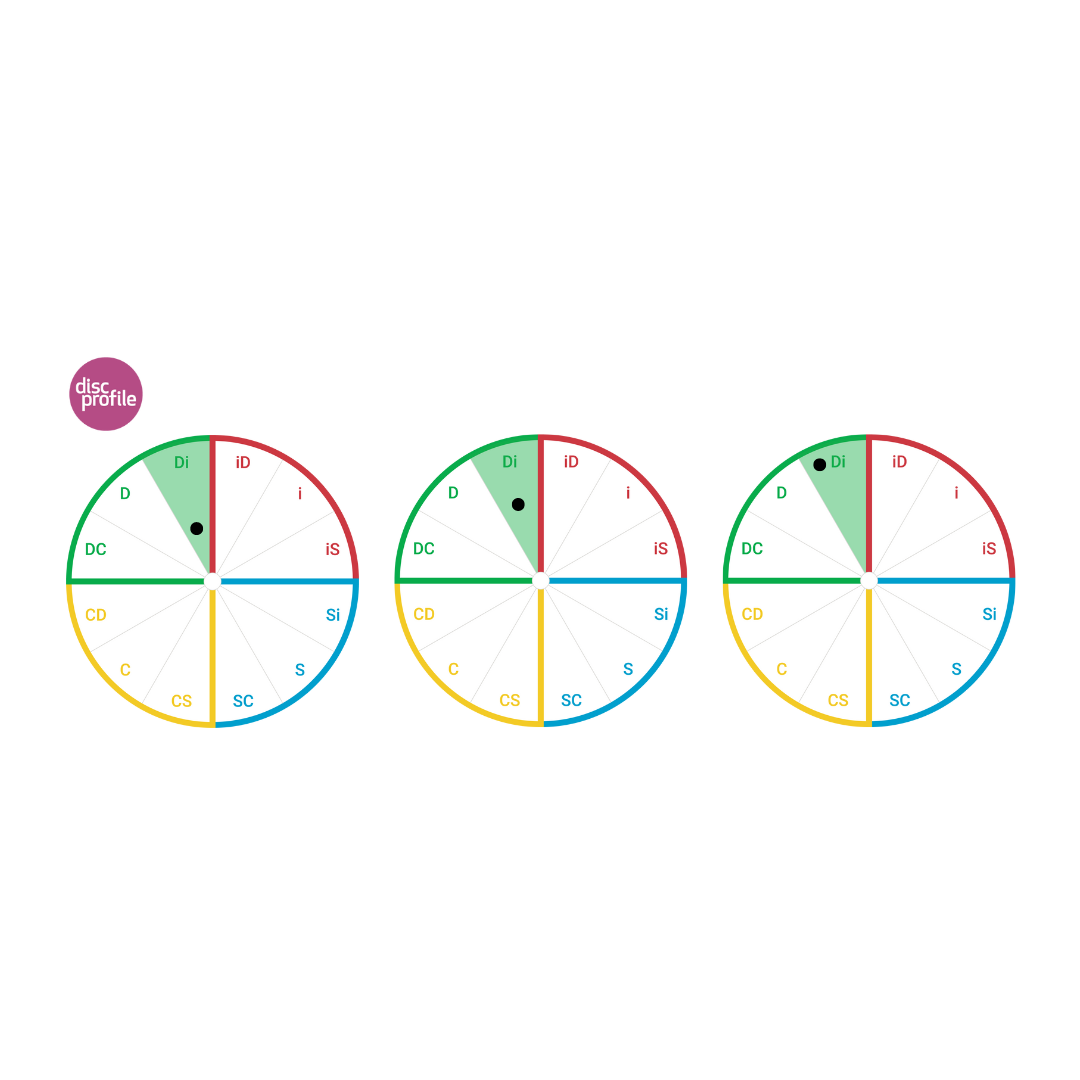
Dot placement
There's a lot of variety within each of the four main DiSC styles. This reflects how wonderfully varied human personality is! People with Di styles share many high-level traits, but each Di-style person reflects the style differently. The dot placement on your Everything DiSC profile will help you discover your unique place on the DiSC map.
For example, you might be strongly inclined to the Di style with your dot appearing on the far edge of the circle near the border between the D and i quadrant. Or you might be slightly inclined toward the style, with your dot appearing closer to the middle.
Learn more: DiSC dot and priorities explained
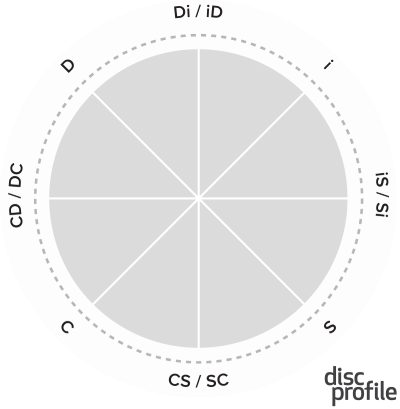
How do you get typed as a Di style in DiSC?
The DiSC model, at its foundation, is two-dimensional, measuring:
- pace (from fast-paced and outspoken to cautious and reflective)
- agreeableness (from questioning and skeptical to accepting and warm)
These two scales form the four primary DiSC quadrants.
However, these are just a starting place for the Everything DiSC assessment. This assessment will tell you not only your main DiSC style (D, i, S, or C) but which of the 12 style blends best represents you and how strongly you align with those traits.
A more detailed look at the DiSC map reveals both the four main quadrants and eight scales.
Everything DiSC assessments measure respondents on these eight scales: D (Dominance), Di/iD, i (influence), iS/Si, S (Steadiness), SC/CS, C (Conscientiousness), and CD/DC.
People with the Di style score highest on the Di/iD scale. Further, their responses show tendencies slightly more in line with the D style than the i style. People with D styles are assertive and achievement driven. i-style folks are lively and people-oriented. Di styles are a blend of the two, with a bit more D than i.
This is another way that Everything DiSC accounts for how varied our personalities can be.
Why is the i in Di lowercase?
The small i in DiSC helps you distinguish Everything DiSC® and DiSC® Classic products from other assessments based on the DISC model. Learn what makes Everything DiSC different.
Di-style managers
Di-style managers tend to be optimistic about people and their abilities. They provide encouragement, and like excitement and fast progress.
Explore information about the strengths of Di-style managers and the unconscious assumptions they tend to make in their day-to-day work. Read about DiSC management styles.
